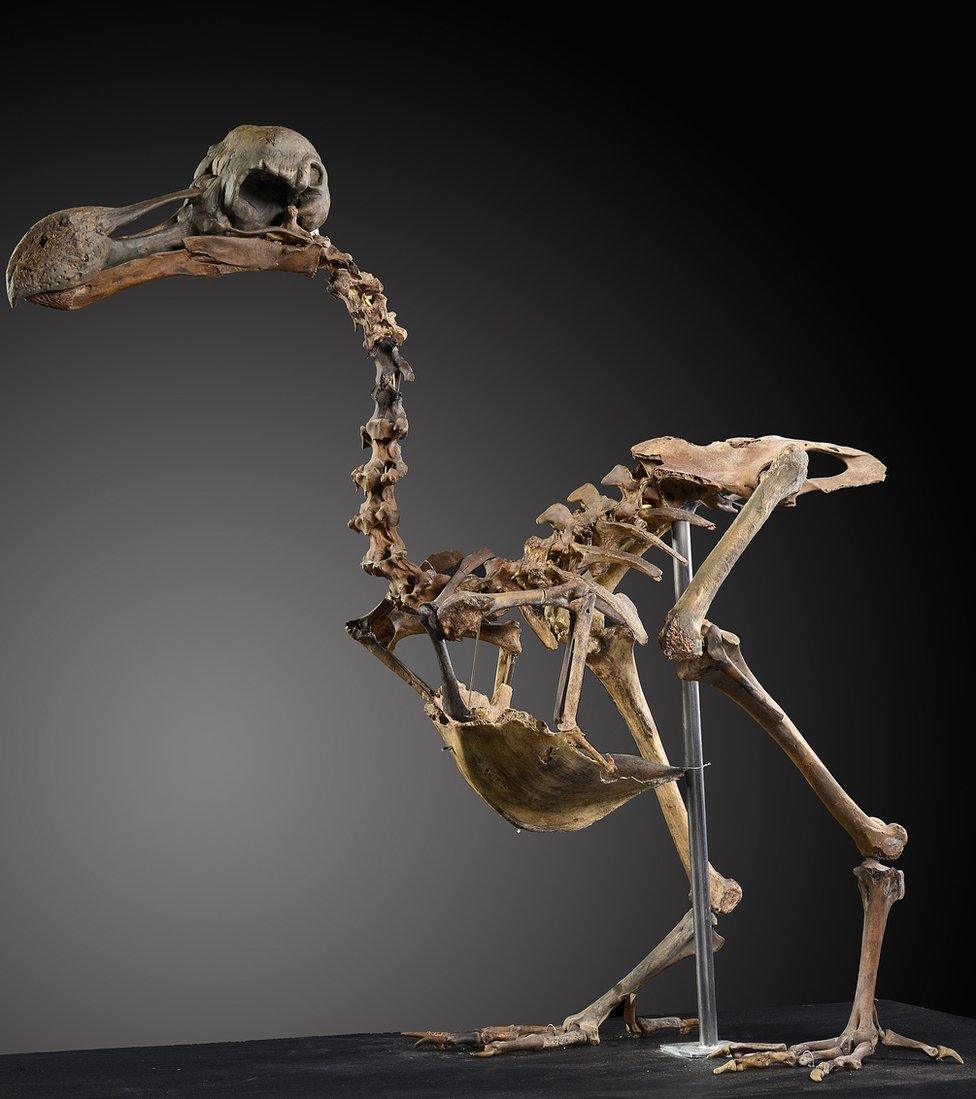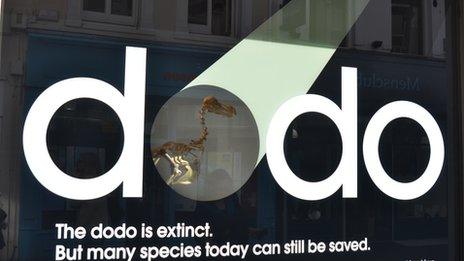Rare dodo skeleton to be auctioned in West Sussex
- Published

The 95% complete composite skeleton is said to be the first put together since the early 20th Century
The first almost complete skeleton of a dodo to come up for sale in nearly a century is to be sold at auction.
The composite of the extinct flightless bird was put together from bones collected over a number of decades.
The private collector offering it for sale only lacked part of the skull and one set of claws when he assembled the specimen in the early 2000s.
It is being sold by Summers Place Auctions in West Sussex in November, and is set to fetch a six-figure sum.
'Icon of extinction'
Director Rupert van der Werff said: "The rarity and completeness of this specimen cannot be overemphasised.
"It provides a unique opportunity for an individual or an institution to own a specimen of this great icon of extinction."
The dodo (Raphus cucullatus) was native to Mauritius but became extinct in the late 17th Century, within less than 100 years of Europeans settling the Indian Ocean island.
The bird, which could not swim or fly, was bigger than a turkey and weighed about 50lbs (23kg).
It evolved in isolation from predators and had no fear of humans. Dodo meat was said to be very tasty, although very little is known about the animal.

The dodo evolved in isolation from predators and had no fear of humans
The majority of the bones in the specimen up for auction were recovered from the Mare aux Songes swamp, in south-eastern Mauritius, in the 19th Century.
The Mauritian government has since banned all exports of dodo bones.
Only one dodo skeleton exists that is made up from the bones of a single animal. It is on display in Port Louis, Mauritius.
About a dozen other specimens are composites made up from bones from several birds.
The 95% complete composite skeleton being offered for auction is said to be the first put together since the early 20th Century.
It will be part of the fourth Evolution sale at the auction house in Billingshurst on 22nd November.
- Published15 October 2013
- Published27 March 2012
